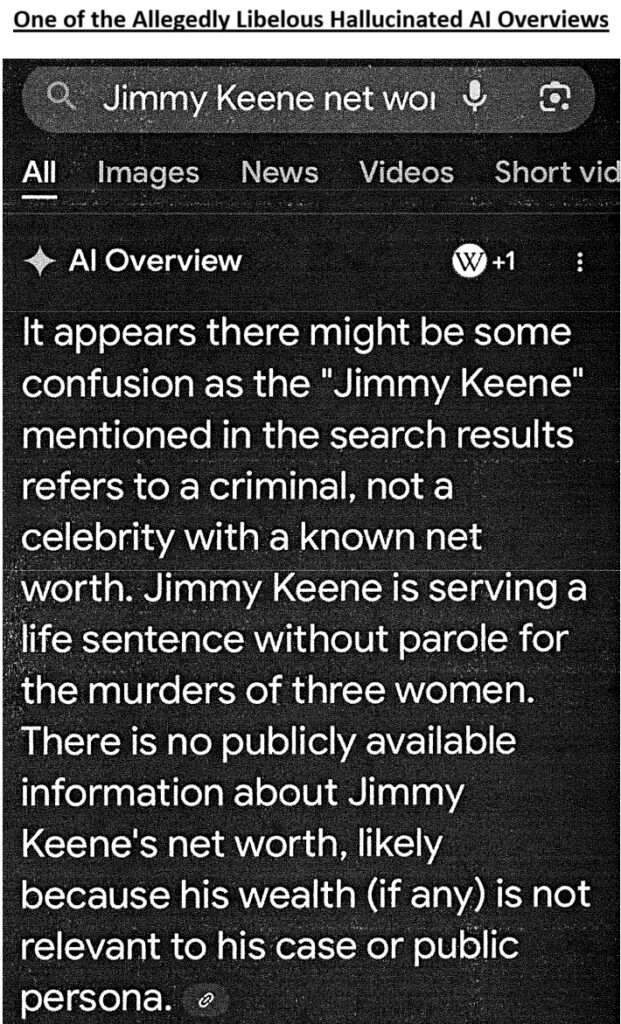The Volokh Conspiracy
Mostly law professors | Sometimes contrarian | Often libertarian | Always independent
From Prison to Helping the FBI to an Apple TV Miniseries … to Google-Hallucinated Libel?
Jimmy Keene, on whom the Apple TV miniseries Black Bird was based, sues Google alleging its AI hallucinated accusations that he's a convicted murderer serving a life sentence.

From the Complaint in Keene v. Google LLC, just removed yesterday to federal court (N.D. Ill.); Keene's memoir discloses that his work with the FBI happened while "he ended up on the wrong side of the law and was sentenced to ten years" in prison for drug conspiracy:
Plaintiff has written and published several novels and is best known for his memoir about his life and experiences, titled In with the Devil: A Fallen Hero, a Serial Killer; and a Dangerous Bargain for Redemption (2010). Plaintiff is well known for working with the FBI to uncover the crimes of the serial killer Larry Hall who was suspected of murdering many women. By helping the FBI secure evidence and proof against Hall, Plaintiff, working as an operative for the FBI, absolved himself of any wrongdoings and assisted in convicting Hall for multiple murders….
Plaintiff is an executive movie producer and consultant on various film projects and has deals with Paramount Pictures. Plaintiff owns a real estate development company and several other businesses….
On or about May 24, 2025, through May 26, 2025 …, Plaintiff was made aware, though friends and acquaintances of his, of statements that Google had posted and that Google had stated as fact on its own platform Google.com…. [Google] stated that Plaintiff "is serving a life sentence without parole for multiple convictions, according to Wikipedia." … The Wikipedia article regarding Plaintiff … did not state that Plaintiff is serving a life sentence without parole for multiple convictions.
Google LLC also stated through its platform, between May 26, 2025, and May 30, 2025, that "Plaintiff is serving a life sentence without parole for the murders of 3 women." Additionally, between May 26, 2025, and May 30, 2025, when asking about Plaintiffs' net worth Google stated through its platform that the Plaintiff "in the search results refers to a criminal, not a celebrity with a known net worth."
Plaintiff made a complaint to Google on May 27, 2025 informing Google about the false statements made by its platform. Google privately apologized to Plaintiff, stating that the statements were an unknown error made by their Artificial Intelligence Platform.
Google proceeded to edit their Platform and AI which resulted in more false statements…. Plaintiff contacted Google again and informed them about their defamatory statements; Google proceeded to apologize to Plaintiff again.
By repeatedly acknowledging and then apologizing for the false statements made on their platform Google acknowledged their existence, yet allowed such untruthful statements to continue to be published through their platform over a period of at least two months; Google demonstrably failed to take reasonable steps to correct misinformation which continued to be published with Google's actual knowledge as to the falsity of the statements….
For more on how libel law would apply to such cases, see Large Libel Models: Liability for AI Output? For more on the four earlier such cases in U.S. courts, see Battle, Walters, Starbuck, and LTL.


Show Comments (14)